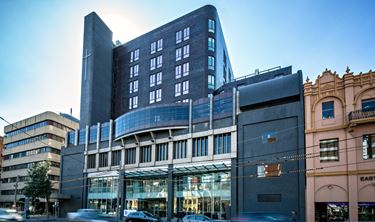Shoulder Bursitis Surgery
- Home
- Services
- Orthopaedics
- Shoulder Orthopaedics
- Other Shoulder Surgeries and Procedures
- Shoulder Bursitis Surgery
What is shoulder bursitis surgery?
Shoulder bursitis, sometimes referred to as subacromial bursitis, is a common shoulder complaint caused by inflammation of the bursa. This small fluid-filled sac acts as a cushioning pad between the bones and soft tissue, allowing the shoulder joint to move without friction. Repetitive overhead activity or sudden injury can inflame and irritate the bursa. This can cause fluid to build up and may result in painful swelling, some stiffness and a restricted range of motion. Anyone can get shoulder bursitis, but it is usually more common in patients over 40, or in jobs that require a lot of overhead movement and repetitive activity.
Shoulder bursitis is usually treated non surgically using rest, medication and physiotherapy to reduce inflammation and ease painful symptoms. Over time, repeated flare-ups can cause arm and shoulder weakness and your doctor may recommend surgery. During the procedure, the bursa is arthroscopically removed (bursectomy) using a small camera and special tools. The shoulder bone may also be shaved (subacromial decompression) to create more space for movement in the joint. If the tendons are damaged, your doctor may recommend rotator cuff repair to restore mobility and function.
General recovery times
Avoiding repetitive overhead movements and taking pain relief are the best ways to prevent episodes of shoulder bursitis. With rest, and given time to heal, the condition should improve significantly after a few weeks. If your doctor has recommended surgery, this is usually performed arthroscopically, with patients returning home the same day and benefitting from a quick recovery.
Rehabilitation starts immediately, as movement is key to making a successful recovery. Patients will be provided with a comprehensive physiotherapy treatment program that will keep the joint flexible, stop scar tissue forming, and help prevent loss of muscle strength. Most patients are usually back to their daily activities within weeks. A complete recovery can take up to four months depending on the extent of the surgery.

Shoulder replacement approaches

How much will my shoulder surgery cost?
Understanding the cost of your treatment is an important consideration before committing to surgery, but it’s not always easy to find the information you need. Learn more about the factors which contribute to the cost of your surgery:
What will my treatment and recovery look like?
Familiarising yourself with your treatment program and understanding the recovery process are important steps to take on the pathway to surgery.

Find a hospital with orthopaedic services
Our Hospitals
